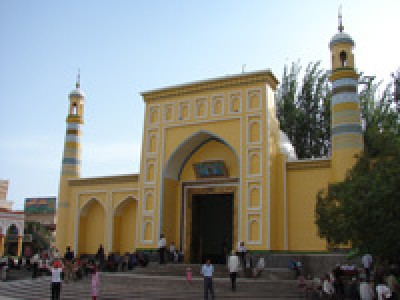
The Id Kah Mosque, in uyghur means Square of festival. Typical Uyghur structure, regarded biggest in China, located in the center of Kashar, has a history of more than five hundred years.100,000 worshippers attend religious service at the same time.
Shakesimirza, the ruler of Kashgar at that time, had the mosque built here first in 1442, in the aim to where he would say prayers to the souls of his deceased relatives. Extended and renovated time several times but keep the style, size, painting, it has finally reached its present size. The Mosque, 140 meters long from south to north and 120 meters from east to west, covers an area of 16,800 square meters and consists of the Hall of Prayer, the Doctrine-Teaching Hall, the gate tower, a pond and some other auxiliary structures.
The gate of the mosque, built of yellow bricks with the joints of the brick work pointed with gysum, has distinct lines. On both side of the gate are eighteen-meter high round brick columns half embedded in the wall. On the top of the columns stands a tower where the imam would call out loudly at dawn every day to wake up the Muslims and summon them to attend service in the mosque. It is the rare sound in China. In the tree-graced courtyard, there is a pond, and on its bank many pottery pots are placed (Now it is seldom seen, because water tap is fixed in the Mosque) to wash their hands, faces, feet and others before attending the service.. The hall ceiling, with fine wooden carvings and colorful flower-and-plant painting patterns, is supported by one hundred carved wooden columns. In the middle part of the wall in the main hall, there is a deep shrine in which a stepped throne is placed. During service, the First Maola stands in the shrine to lead the prayer. And on Fridays or Corban, the First Maola conducts "Wa"z," standing on the steps of the throne. After entering the main hall, the followers would seat themselves facing to Mecca inside and out, in proper lines.
On Lesser Bairam and Corban, the biggest Islam festivals, the Uygur people gather on the square in front of the mosque to celebrate their festivals with jubilation. On those days Uyghur people dressed in their holiday best, dance “Sama”, overflowing with enthusiasm, to the cheerful drum beats and music.

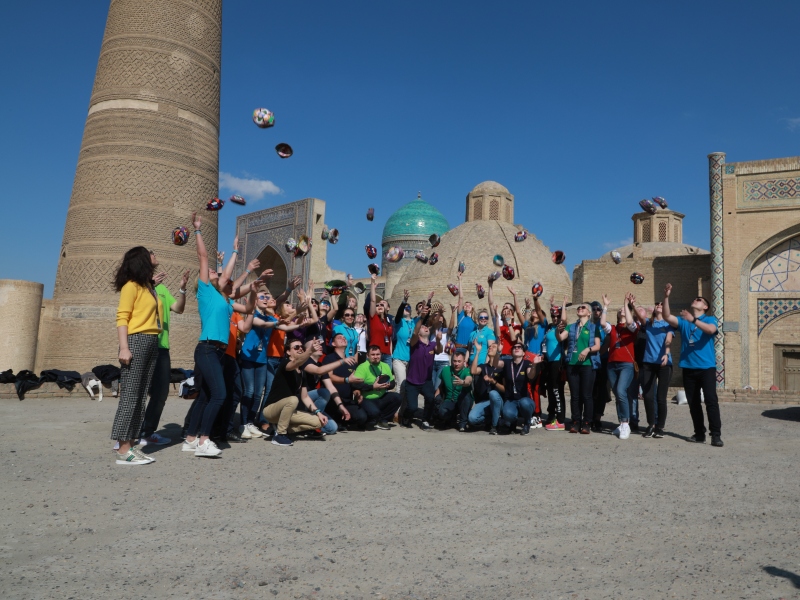 Centralasia Adventures
+998712544100
Centralasia Adventures
+998712544100




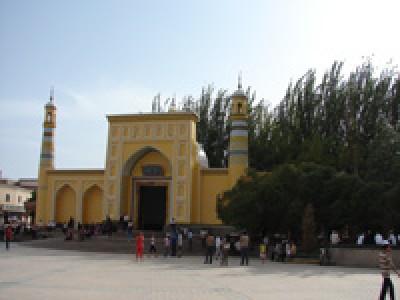
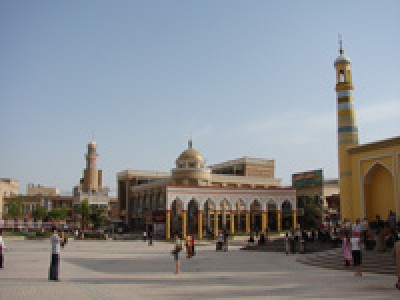
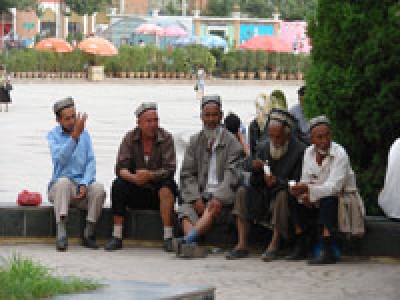
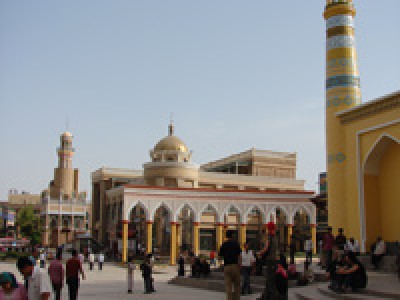
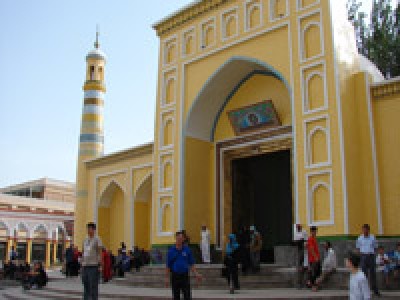
 Posted by
Posted by

